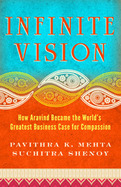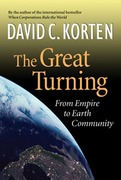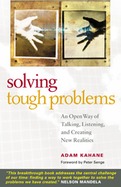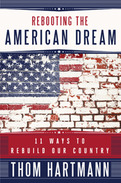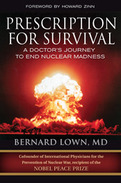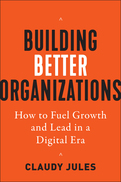2011
Explores the inspiring paradox of an extraordinary business that breaks all the rules.
When a crippling disease shattered his lifelong ambition, Dr. V (Venkataswamy) chose an impossible new dream: to cure the world of blindness. The tiny clinic he founded in India defied conventional business logic and is now the largest provider of eye care on the planet. At Aravind, patients choose whether to pay or not. Millions are treated for free, yet the organization remains stunningly self-reliant. Serving everyone from penniless farmers to the president, it delivers world-class outcomes at less than a hundredth of what similar services cost in advanced nations. Its model is emulated by organizations everywhere from Rwanda to San Francisco. Infinite Vision uncovers the radical principles behind Aravind’s baffling success. Charged with profound insights and stories, it draws readers to the heart of Dr. V’s selfless vision, proving how choices that seem quixotic can, when executed with compassion and integrity, yield incredible results—results that can light the eyes of millions.
2007
Adam Kahane has worked on some of the toughest, most complex problems in the world. He started out as an expert analyst and advisor to corporations and governments, convinced of the need to calculate “the one right answer.” After an unexpected experience in South Africa during the transition away from apartheid, he got involved in facilitating a series of extraordinary high-conflict, high-stakes problem-solving efforts: in Colombia during the civil war, in Argentina during the collapse, in Guatemala after the genocide, in Israel, Northern Ireland, Cyprus, and the Basque Country. Through these experiences, he learned to create environments that enable new ideas and creative solutions to emerge even in the most stuck, polarized contexts. Here Kahane tells his stories and distills from them an approach all of us can use to solve our own toughest problems—at home, at work, in our communities, and in national and international affairs.
“This breakthrough book addresses the central challenge of our time: finding a way to work together to solve the problems we have created.”
—Nelson Mandela
-
By Americas #1 progressive radio talk show host
-
Draws on American history to offer proven solutions to America's current problems
-
Controversial, impassioned, insightful, iconoclastic -- typical Thom Hartmann
If something is wrong with your computer you reboot -- start over. That is what Thom Hartmann is advocating to restore an America beset by problems like joblessness, declining wages, huge disparities in wealth, corruption, environmental degradation, and corporate domination. The answers can be found by going back to the operating system designed by our Founding Fathers and refined by both Democrats and Republicans -- until a virus called Reaganomics began to damage it, and subsequent attacks under both Bushes and even Clinton weakened it even further.
Almost every initiative Hartmann is advocating here is rooted in America's past -- ideas that worked, and worked well, for decades. Hartmann demolishes the specious arguments so-called conservatives have used to undermine these ideas and details the disastrous results of their "reforms."
For example, until the 1980s America had a tariff-based trade policy, and American industry was healthy and American wages strong - what has been the result since we replaced this policy with "free trade"? America curbed corporate power since the earliest days of the republic -- why are we now refusing to enforce the Sherman Anti-Trust Act and allowing corporations unfettered access to the political process, something Theodore Roosevelt fought against? Medicare is popular and efficient - why not make it available to everybody, particularly since, as Hartmann reveals, it was designed to be easily scaled up? Not only do tax cuts like those championed by Reagan and Bush help only the wealthy, but the record proves higher tax rates actually drive wages up -- so why not roll back those tax breaks for billionaires and lose our knee-jerk aversion to tax increase?
On issue after issue Hartmann argues that the way forward is to look back, to tap into the wisdom residing in two and a half centuries of American history. Some of his conclusions will be controversial, such as his calls to crack down on illegal immigration and to reinstate the draft. But the litmus test for each is not political correctness but whether or not it serves to strengthen this country we all love and make life better for her citizens.
· A dramatic memoir by a Nobel Prize winner and medical pioneer
· Shows that the nuclear threat, which is still very much with us, can be successfully opposed by citizen action
· Analyzes what really drove the Cold War and what continues to drive nuclear proliferation today
“How close we came to extinction, and it is forgotten now.” So begins Nobel Prize-winner Bernard Lown’s story of his fight against the nuclear symptom of what he calls “the disease of militarism.” It is still active and highly contagious, as witnessed by events in Iran, North Korea, Pakistan, and all too many other places. And it can only be stopped, as this extraordinary memoir vividly demonstrates, by concerned citizens working together.
In 1981, brimming with anxiety about the escalating nuclear confrontation with the Russians, Lown launched a USA-USSR antinuclear movement with Soviet cardiologist Evgeni Chazov: The International Physicians for the Prevention of Nuclear War (IPPNW). Over the next four years Lown and Chazov recruited more than 150,000 doctors worldwide to join their movement, held international conferences that included U. S. and Russian military leaders, met with numerous world political leaders, and appeared on television programs broadcast throughout the USSR and the U. S. In 1985, despite active opposition from the U. S. government and NATO, Lown and Chazov accepted the Nobel Peace Prize on behalf of IPPNW.
This dramatic story is told with a vibrancy of language that illuminates dramatic scenes such as Lown convincing King Hussein of Jordan to join the anti-nuclear struggle during a medical exam, the heart attack of a Russian journalist at an IPPNW press conference, and Lown’s face-to-face conversations with Gorbachev. Although this book is concerned with a potential clash of superpowers, Lown writes, “At the heart of these cascading events is a human narrative.”
“Historical amnesia is a prelude for repeated victimization,” Lown says. Prescription for Survival probes the past to help us understand what drove, and continues to drive, nuclear proliferation, and offers a blueprint showing how we can join together across national boundaries to end it.
To scale and grow, a company must get the organizational elements right. That begins with having the right strategy, the right leadership to drive it, and the right talent, culture, and organizational design to realize a company's potential. This is especially true in the AI era, where a company's most valuable assets are its people.
To begin with, leaders must rethink their value creation strategies. To hone their organizational edge, leaders must prioritize their organization's health in seven vital areas: strategic direction, culture, leadership, talent, organizational design, EID (equity, inclusion, and diversity), and well-being. No matter what type or size of business, those essential conditions must be leveraged for increased value and growth. Put simply: organizational matters matter. To hone their digital edge, leaders must understand AI, as advances in technology allow leaders to build organizations that can compete and win in the future. Finally, an investor mindset will enable leaders to invest wisely in the technology (and leverage that tech) that sets their organizations apart.


